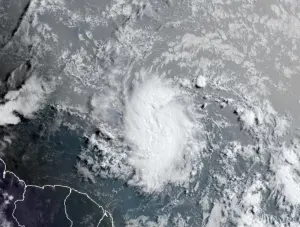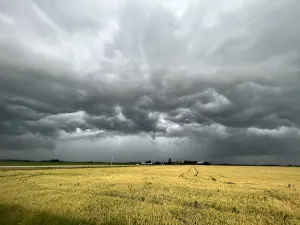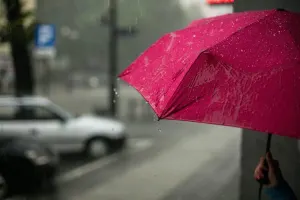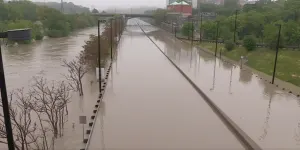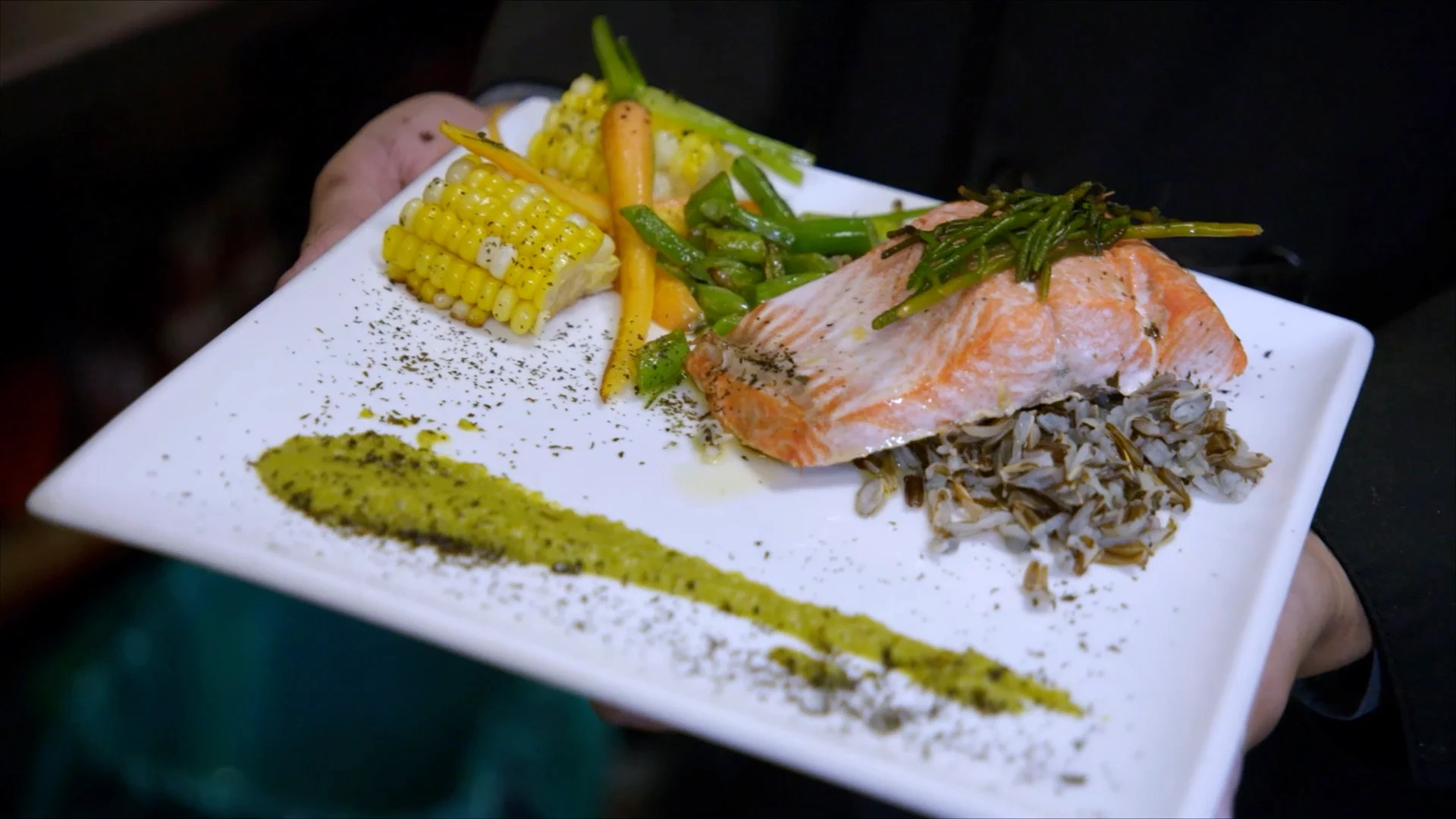
How the loss of West Coast salmon impacts First Nations far beyond just food
Coastal communities are reeling as industrial fish farms put increased pressure on wild salmon populations already under stress from climate change.
The ʼNa̱mǥis First Nation located in Alert Bay on British Columbia’s West Coast has relied on salmon as a main food source for thousands of years.
Salmon are sacred for Indigenous people living there, but that legacy is now threatened by the long-term consequences of industrial fish farms over the last three decades.
Melina Laboucan-Massimo, one of Canada’s leading climate change advocates and the host of Power to the People, visited the nation to see how they are fighting for not only the health of their salmon population but orcas too.
Watch past episodes of Power to the People here
“They dump their waste right into the open ocean. They don't handle any waste at all,” said Chief Ernest Alfred, hereditary leader and elected council member of the ʼNa̱mǥis First Nation.
“You've got the blood water from the processing plants, you've got the sea lice, you've got disease. Test results came back positive for PRV (piscine orthoreovirus). We know that's what's wrong with our chinook salmon and that is what is going to kill the southern resident orca population.”

Blood water spills out as salmon swim around it. (Power to the People)
Alfred says it’s been “devastating” to witness, and it’s even affected the local economy as there are less wild fish to harvest.
“They're calling it a state of collapse,” he said when the episode was filmed in 2018. “Our chum, in particular, are in big trouble. So we have a fish hatchery, where we have an enhancement program at the river. And they were able to catch 17 — one seven — for the brood stock, which is extremely low. It's appalling.”
Laboucan-Massimo also visited an Indigenous restaurant in Vancouver to see how the problem expands into Canada’s food supply.
“When I opened this restaurant, I made a commitment to only serve wild fish. I don't eat farmed salmon,” said Inez Cook, co-founder and owner of the Salmon N’ Bannock Bistro. “I will never serve farmed salmon to save a buck.”
It's something that’s drawn environmentalist David Suzuki to the restaurant.

Power to the People host Melina Laboucan-Massimo spoke with David Suzuki about the problems facing salmon over dinner. (Power to the People)
“When you use open nets, you're basically using the ocean as a sewer. I scuba dived under a net pen once and I had a yardstick, and I stuck the yardstick into the waste underneath,” he said to Laboucan-Massimo as they shared a meal.
“It went right up to my armpit and didn't touch the bottom. It was just all that uneaten pellets and feces and it's like a desert, nothing lives there. The oceans are in bad shape.”
Laboucan-Massimo said while it was an honour to enjoy a lovely wild salmon meal, she wondered what the future holds as every Indigenous community she visited along the coast have talked about how the salmon stocks are drastically depleting as ocean temperatures warm with climate change.

Canada's fisheries minister announced delaying a decision on closing the remaining ocean-based salmon farms in British Columbia in late May after industry pressure. (Power to the People)
Suzuki says some of the fish farms use Atlantic salmon, which he finds strange given the West Coast already has five varieties of the species to call their own. He’s spoken to Chief Alfred in the past about the situation.
“I spent many hours with Ernest. And what was most moving to me was when he described putting a camera into the net pen and seeing the fish with big tumors on their sides,” said Suzuki. “And some fish you see with no lower jaw or their backs are all crooked like this. And Ernest went off when he saw this and went in the corner and just cried.”
He says the salmon are like brothers and sisters in the culture — which has already been greatly impacted by losing family members that have gone missing or been murdered. Laboucan-Massimo is no stranger to that pain, as her sister is among those mourned in First Nation communities across the country.
In the episode, she was able to attend a potlatch held in Alert Bay to honour those missing and murdered Indigenous relatives.

A potlatch is a large community feast and gathering that at one time was outlawed by the Canadian government. (Power to the People)
“The fact that the community is dealing with so much here, with corporations on their waters threatening their wild salmon species to multinational corporations taking down their ancient growth forests, yet they still have time to reach out and help other Indigenous families,” said Laboucan-Massimo, who reflected on how it is uplifting to see the healing happening despite the devastating issues surrounding their community.
Thumbnail image: Salmon serves as much more than food for First Nation communities. (Power to the People)








